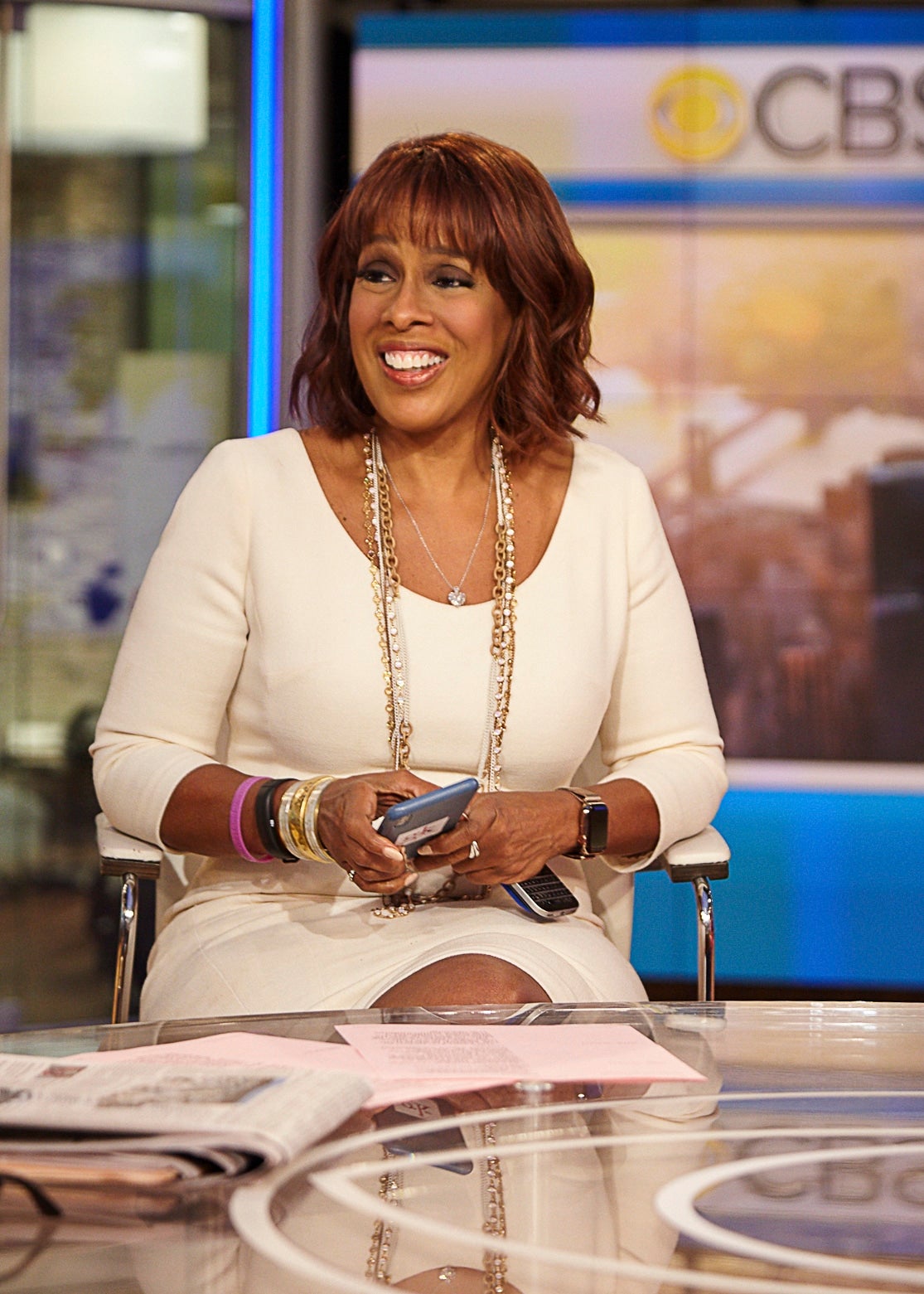As a woman of color, Gayle King believes she has a special responsibility to share her perspective. The veteran journalist and CBS This Morning co-host knows a lot about getting the story.
Her hour-long prime-time interview with singer and accused sex abuser R. Kelly this past March garnered high ratings. Of note was King’s calm demeanor in the face of Kelly’s viral volatile eruption, a welcome refutation of a tired gender stereotype. She got the story, of course.
And whether she’s reporting on Trayvon Martin or child abuse at the Texas border, her approach never feels heavy-handed. Instead King’s appeal lies in a grounded relatability and natural curiosity tempered by 40 years in the broadcast journalism game. Through celebrity hissy fits and “fake news” accusations, she remains undeterred.
“I will never believe truth has lost its power,” King tells ESSENCE in our May 2019 issue. “Listen: These are very dicey times, but you just have to keep telling the truth.”
Below King stresses the importance of putting yourself in the position to do just that:
I know the power of storytelling. To me, it means being where the decision-making happens—this is something I feel really strongly about. You have to figure out a way to have a seat at the table so that your voice is heard. I know there have been several times at CBS when my speaking up made the difference in a story.
I remember being in a meeting when the Trayvon Martin case happened. It was this terrible story in Florida. This kid, 17 years old, went to get some Skittles and iced tea, and he lost his life. I said, “Wait a minute. He’s what? Seventeen? And what was happening?” They said, “Yeah, but it’s a local story.” I looked at that story, and I said, “This is not a local story. This is outrageous what has happened.”
I’m more sensitive to it, I know, because I’m a woman of color in the room. And I think because my opinion is respected, people were willing to say, “Let’s take another look at it,” which they did. I believe we ended up being the first national news organization to cover that story.

Everything is determined by ratings, and it didn’t rate well. I was told, “See, your little story didn’t do well in the ratings. People don’t care.” I said, “Well, sometimes it’s our responsibility to make them care.” Sometimes that’s our responsibility as journalists. And you see what happened with Trayvon Martin? That turned into a huge national conversation that still resonates today.
Now, I’m certainly not taking credit for that because everybody started telling that story, but I know that my being in the room that day made a difference. That’s the definition of power: that people look at you and think, Well, if they’re doing it, maybe we should do it too.
One of my favorite quotes comes from Nina Shaw—she’s a bada-s mama jama lawyer in Hollywood. She said, “If you want to be a woman in power, then empower other women.” Drop the microphone, Ms. Nina, because that is so true! Women, people of color, we come to the table with different sensibilities. And we all need to contribute to the conversation.
My grandmother used to say, “With great power comes great responsibility.” And I take my responsibility as a journalist very seriously. I go to work every day thrilled to be there. Even on the days I’m tired, I still think it’s a sh-tty schedule, but it’s a great job. Look at what we get to do. It’s a privilege and an honor. So enjoy it.


